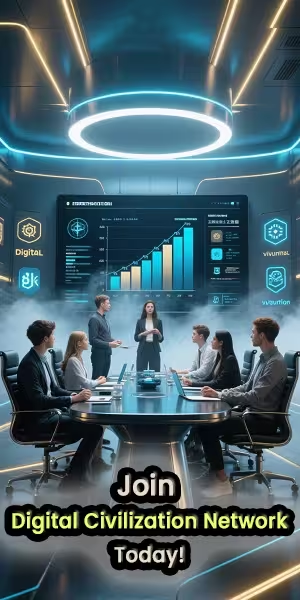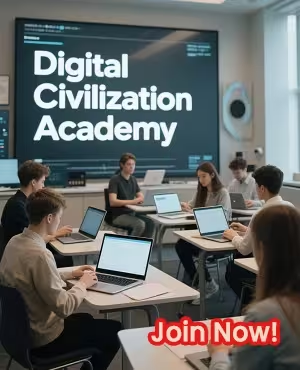In an era where knowledge expires faster than milk in your refrigerator, the traditional “graduate and you’re done” mentality has become as outdated as flip phones. Welcome to the age of lifelong learning communities—dynamic ecosystems where curious minds gather to continuously evolve, adapt, and thrive in our rapidly changing world.
Why Lifelong Learning Communities Beat Solo Study
The Death of the One-and-Done Education Model
Remember when a college degree was your golden ticket to career security? Those days are long gone. Today’s professionals face a startling reality: skills have a half-life of just 2-5 years in most industries, and in tech-heavy fields, it’s even shorter. The World Economic Forum predicts that 50% of all employees will need reskilling by 2025. This isn’t just about staying relevant—it’s about survival in the modern workforce.
This is where lifelong learning communities emerge as your secret weapon against obsolescence.
What Exactly Are Lifelong Learning Communities?
Think of lifelong learning communities as intellectual gyms for your brain, but way more fun and significantly less sweaty. These are structured groups of individuals who come together—either virtually or in person—to pursue continuous learning, share knowledge, and support each other’s educational journeys throughout their lives.
Unlike traditional educational settings with rigid curricula and semester deadlines, these communities offer flexibility, peer-to-peer learning, and real-world application. Members range from recent graduates to seasoned professionals, retirees exploring new passions, and everyone in between.
The Magnetic Pull of Collective Learning
1. Accountability That Actually Works
Ever bought an online course with grand ambitions, only to let it collect digital dust? You’re not alone. Studies show that people are 65% more likely to complete a goal when they share it with someone, and that jumps to 95% when they have specific accountability appointments.
Lifelong learning communities create natural accountability systems. When Sarah from marketing knows you’re working through that Python course, and Tom from HR is counting on your insights for next week’s discussion, suddenly abandoning your learning goals feels a lot less appealing.
2. The Power of Diverse Perspectives
One of the most underrated benefits of lifelong learning communities is the cognitive diversity they offer. When a graphic designer, a financial analyst, and a retired teacher tackle the same problem, magic happens. This cross-pollination of ideas leads to innovative solutions that none of them would have discovered in isolation.
Research from MIT’s Center for Collective Intelligence shows that diverse groups consistently outperform homogeneous teams in complex problem-solving tasks. Your community becomes a living laboratory for breakthrough thinking.
3. Networking That Doesn’t Feel Like Networking
Traditional networking events can feel as authentic as a politician’s campaign promise. Lifelong learning communities flip this script entirely. Relationships develop naturally around shared intellectual curiosity rather than business card exchanges. These genuine connections often prove more valuable than any LinkedIn strategy.
The Science Behind Community-Driven Learning
Neuroscience reveals fascinating insights about how we learn in groups. Mirror neurons fire when we observe others learning, literally helping our brains absorb information more effectively. The social aspect of learning triggers the release of oxytocin, the “bonding hormone,” which enhances memory formation and reduces stress.
Dr. Barbara Oakley, author of “Learning How to Learn,” emphasizes that explaining concepts to others solidifies our own understanding—a principle known as the Feynman Technique. Lifelong learning communities provide endless opportunities to teach and learn simultaneously.
Lifelong Learning Communities: Your Success Secret
Breaking Down Barriers to Entry
1. Financial Accessibility
Traditional education often comes with crippling price tags. Lifelong learning communities operate on various models—some are completely free, others charge modest membership fees, and many offer sliding scale options. The democratization of learning means your postal code or bank account doesn’t determine your educational opportunities.
2. Time Flexibility
Unlike rigid academic schedules, these communities adapt to real life. Many operate asynchronously, allowing members to contribute when their schedules permit. Whether you’re a night owl, early bird, or weekend warrior, there’s space for your learning rhythm.
3. Learning Style Accommodation
Some people learn by reading, others through hands-on experience, and many through discussion and debate. Lifelong learning communities naturally accommodate different learning styles through their varied activities—from book clubs and workshops to project collaborations and mentorship programs.
Real-World Impact Stories
Consider Maria, a 45-year-old accountant who joined a local lifelong learning community focused on sustainable business practices. Through group projects and peer discussions, she developed expertise that led to her company’s first sustainability initiative, earning her a promotion and a 30% salary increase.
Or take James, a recent retiree who thought his learning days were over. His participation in an online community studying emerging technologies not only kept his mind sharp but led to consulting opportunities that now supplement his retirement income.
Choosing Your Learning Tribe
Not all lifelong learning communities are created equal. Look for groups that:
- Have clear learning objectives and structured activities
- Maintain active, engaged membership
- Offer both virtual and in-person interaction opportunities
- Encourage diverse perspectives and inclusive participation
- Provide resources and support for continued growth
Popular platforms include Coursera learning groups, local library programs, professional association chapters, online forums like Reddit’s learning communities, and meetup groups in your area.
Join Lifelong Learning Communities & Future-Proof Career
The Future-Proofing Effect
Joining a lifelong learning community isn’t just about acquiring new skills—it’s about developing meta-skills: learning how to learn, adapting to change, and building resilience in uncertainty. These capabilities become increasingly valuable as the pace of change accelerates.
As automation and AI reshape the job market, the humans who thrive will be those who can continuously evolve, collaborate effectively, and apply knowledge creatively. Lifelong learning communities cultivate exactly these abilities.
Your Next Step
The question isn’t whether you can afford to join a lifelong learning community—it’s whether you can afford not to. In a world where standing still means falling behind, these communities offer a pathway to continuous growth, meaningful connections, and future-ready skills.
Start small. Find one community that aligns with your interests or career goals. Attend a few sessions. Contribute to discussions. Watch as your perspective expands and your confidence grows.
The future belongs to the learners. Will you be among them?


